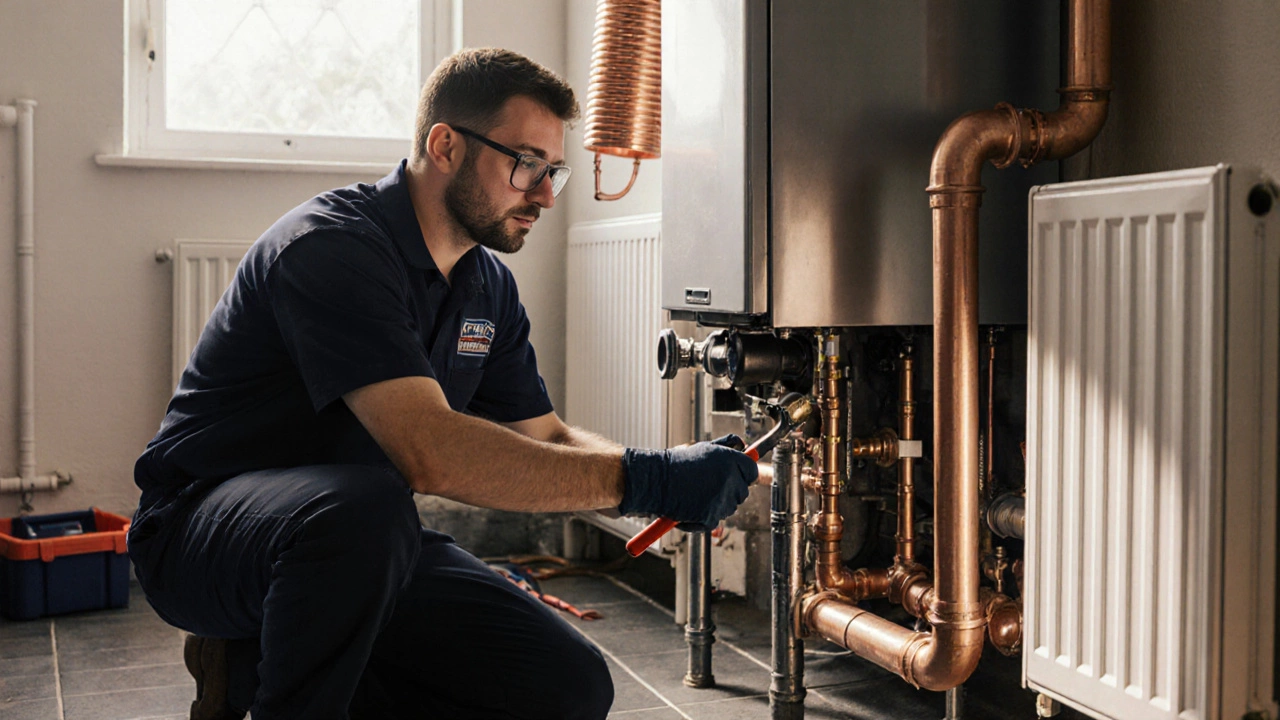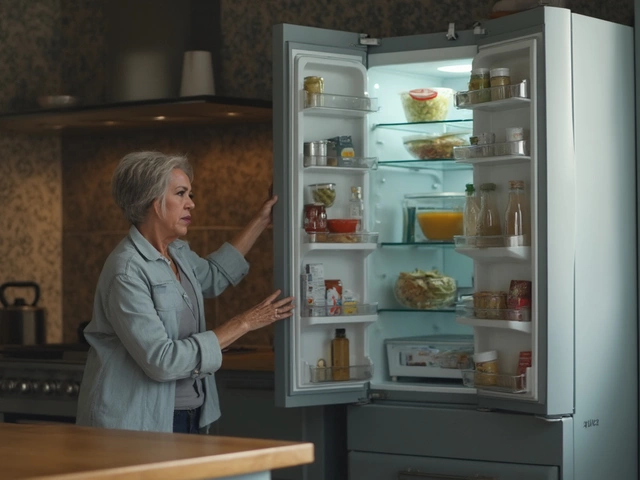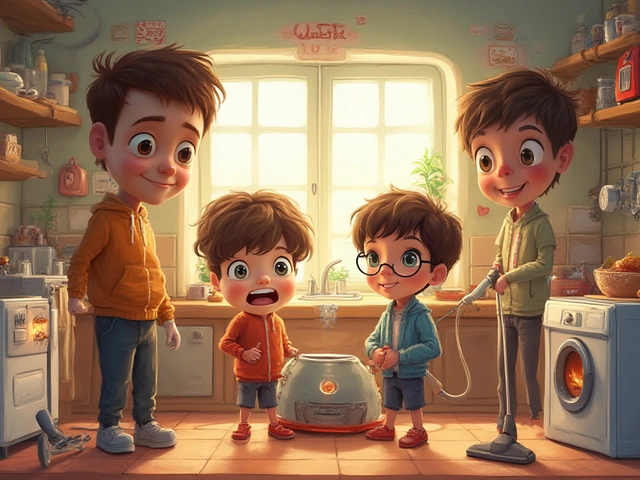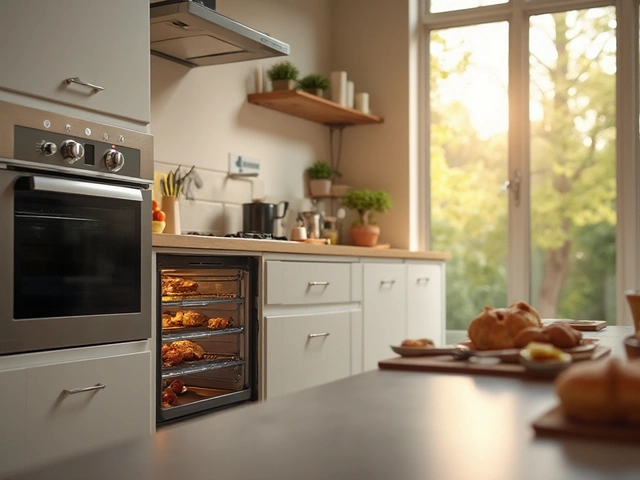Boiler Repair Professional Finder
Find the right professional for your boiler issue
Select your boiler symptoms below and we'll tell you whether you need a plumber or a heating specialist.
Common Boiler Symptoms
Select the problem you're experiencing with your boiler:
Ever wondered if the guy who fixes your kitchen sink can also take care of your home’s heating heart? That’s a common question, especially when a boiler starts making strange noises or loses pressure. In this guide we’ll break down what plumbers actually do, when they’re qualified to work on boilers, and when you should call a heating specialist instead. By the end you’ll know who to call, how to keep costs down, and what safety steps to follow in Auckland and the rest of New Zealand.
What a plumber does
Plumber is a tradesperson who installs, repairs, and maintains water‑based systems such as pipes, fixtures, and drainage. In a typical New Zealand home, a plumber handles everything from leaky taps and blocked drains to new pipework for renovations. Their licence, issued under the Building Act 2004, requires them to understand the country's standards for water safety, backflow prevention, and pressure management.
- Install and replace taps, showers, toilets, and kitchen sinks.
- Clear blocked drains and fix pipe leaks.
- Service hot‑water cylinders and basic water heaters.
- Test and certify compliance with the NZ Plumbing Code.
Boiler basics
Boiler is a closed vessel that heats water for central heating or domestic hot‑water supply. In Auckland most homes run on either a gas boiler or an electric boiler, both of which feed a central heating system. The heated water circulates through radiators or under‑floor pipes, keeping the house warm while also providing hot water for showers and dishes.
Key boiler components include the heat exchanger, thermostat, pressure relief valve, and gas or electric burner. A well‑maintained boiler can last 15‑20 years, but regular service is crucial to prevent carbon monoxide leaks, loss of efficiency, and costly breakdowns.
When plumbers can service boilers
Plumbers are licensed to work on the water side of a boiler system. That means they can:
- Replace pipework that runs between the boiler and radiators.
- Fix leaking pressure relief valves, provided the valve itself is a standard plumbing component.
- Inspect and service the domestic hot‑water outlet, especially if it shares the same cylinder as the heating circuit.
- Bleed radiators, balance system pressure, and purge air from the network.
What they cannot do without additional certification is tamper with the boiler’s burner, gas valve, or internal combustion controls. Those tasks fall under the remit of a heating specialist or a gas‑fitting licensed professional.
When you need a heating specialist
A heating specialist (sometimes called a boiler engineer) has a separate licence to handle gas‑related work and the internal components of a boiler. They are the right choice for:
- Installing a new gas boiler or converting from electric to gas.
- Servicing the burner, ignition system, or gas pressure regulator.
- Performing a full annual boiler inspection required by the NZ Building Act.
- Diagnosing fault codes on modern condensing boilers.
Because these jobs involve combustible gas, the specialist must be registered with Gasfitting New Zealand and follow strict safety protocols.
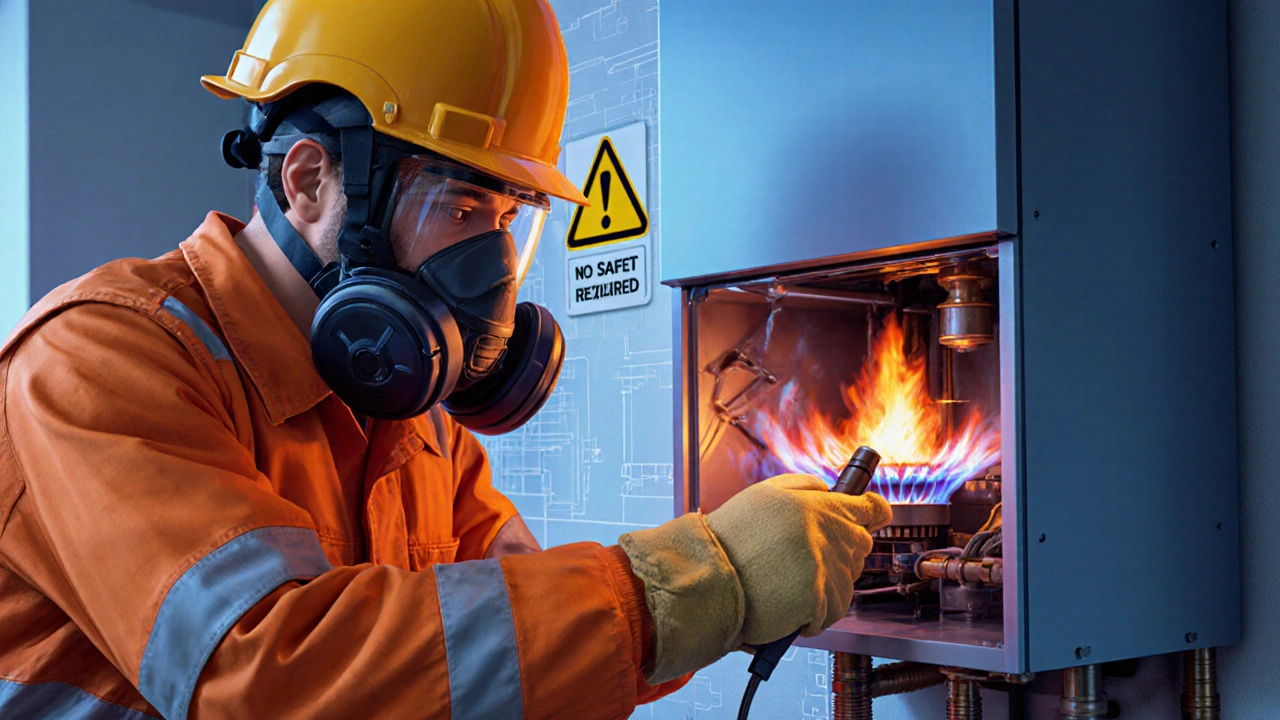
Comparison: Plumber vs Heating Specialist
| Task | Plumber | Heating Specialist |
|---|---|---|
| Replace pipework to radiators | ✅ | ✅ |
| Bleed/balance radiators | ✅ | ✅ |
| Service pressure relief valve | ✅ (standard valve) | ✅ (all types) |
| Inspect gas burner | ❌ | ✅ |
| Install new boiler | ❌ (unless also gas‑licensed) | ✅ |
| Annual compliance test | ❌ | ✅ |
Common boiler issues and who fixes them
- Loss of pressure - Usually a pipe leak or a faulty pressure relief valve. A plumber can locate the leak and replace the valve.
- Noisy operation - Kettle‑like sounds often mean air trapped in the system. Plumbers bleed radiators; if the noise comes from the burner, call a heating specialist.
- Cold spots in radiators - Could be a blocked pipe (plumber) or a failing pump (heating specialist).
- Carbon monoxide alarm goes off - Immediate call to a heating specialist; they’ll test the combustion chamber and venting.
- Boiler won’t fire up - If the issue is the gas supply or ignition, a specialist is needed. If the boiler is electric, a qualified electrician or plumber with electrical licence can help.
How to choose the right professional in New Zealand
When you pick a contractor, keep these three checks in mind:
- Licence verification - Use the Building Performance site to confirm a plumber’s licence number. For gas work, check the Gasfitting New Zealand register.
- Insurance and warranty - A reputable service will offer a written guarantee on parts and labour. This protects you if the boiler fails again within a short period.
- Local experience - Auckland’s coastal climate can cause corrosion in pipework. Professionals who’ve worked in the region understand the specific materials and corrosion‑prevention methods required.
Ask for a written quote that breaks down labour, parts, and any travel fees. Compare at least two quotes - this helps you spot outlier prices that may indicate hidden costs.
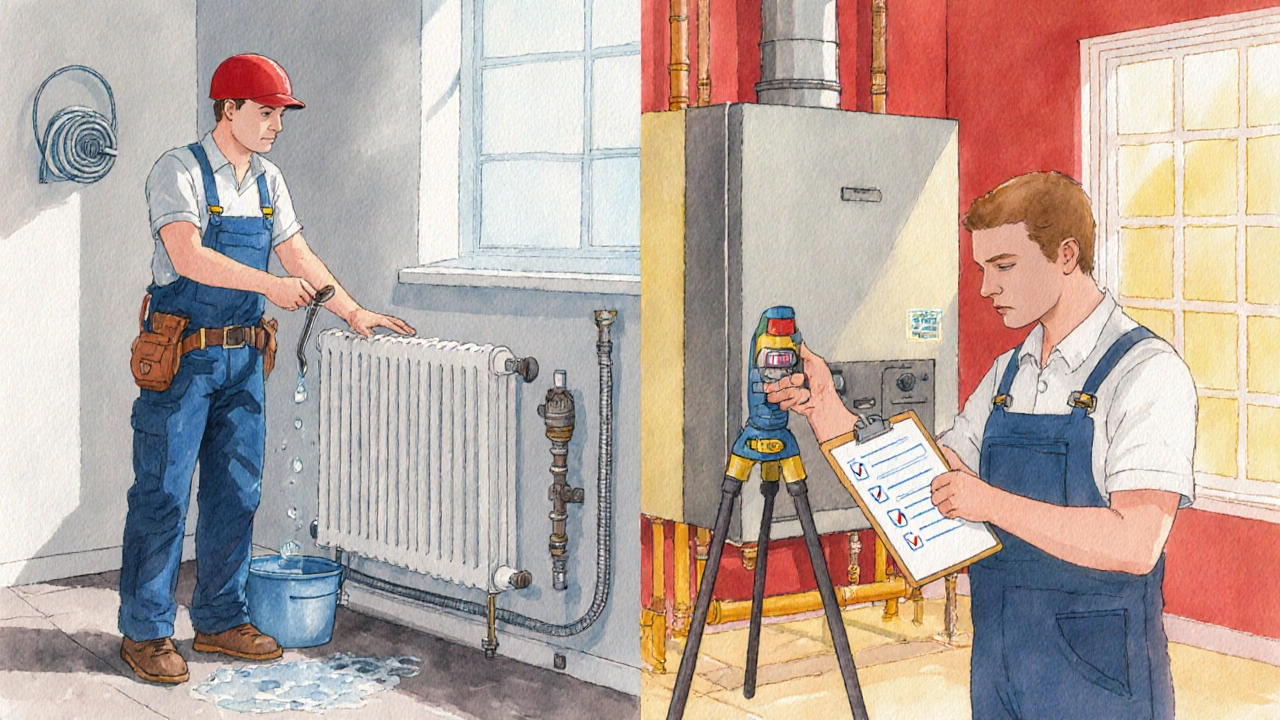
Cost expectations and safety tips
For a typical domestic boiler service, expect the following price ranges in 2025:
- Basic pipe repair or radiator bleed by a plumber - NZ$80‑$150.
- Pressure relief valve replacement - NZ$150‑$250 (parts + labour).
- Full gas‑boiler inspection by a heating specialist - NZ$200‑$350.
- Major boiler replacement - NZ$5,000‑$9,000 depending on brand and size.
Never attempt to open the gas valve or burner yourself. Even if you’re comfortable with DIY plumbing, gas work requires specialised training. Always ventilate the area, turn off the mains gas supply, and call a qualified professional if you smell gas.
Quick checklist before you call
- Identify the symptom: pressure loss, noise, no heat, or carbon‑monoxide alarm.
- Check if the issue is on the water side (leaks, radiators) - plumber.
- Check if the issue involves gas, ignition, or the heat‑exchanger - heating specialist.
- Gather your boiler’s make, model, and serial number - this speeds up quotes.
- Verify licences and insurance before booking.
Frequently Asked Questions
Can a plumber repair a gas boiler?
A plumber can handle the water‑side of a gas boiler - things like pipe leaks, radiator bleeding, and pressure‑relief valve swaps. For burner, gas valve, or combustion checks, you need a heating specialist with a gas‑fitting licence.
Do I need an annual boiler inspection?
Yes. New Zealand law requires a certified heating specialist to perform an annual safety check on gas boilers. It ensures the unit complies with the Building Act and keeps carbon‑monoxide risks low.
Is it cheaper to call a plumber for boiler issues?
For water‑side problems, a plumber usually charges less than a heating specialist. However, calling the wrong tradesperson can waste time and money if the fault is on the gas side.
What safety gear should a plumber wear when working on a boiler?
Gloves, safety glasses, and a respirator when dealing with dust or old insulation. If there’s any chance of gas, a portable gas detector is essential.
How often should boiler pipework be replaced?
In coastal Auckland, corrosion can bite in 10‑12 years. If you see rust, leaks, or low pressure frequently, it’s time for a plumber to replace the affected sections.
